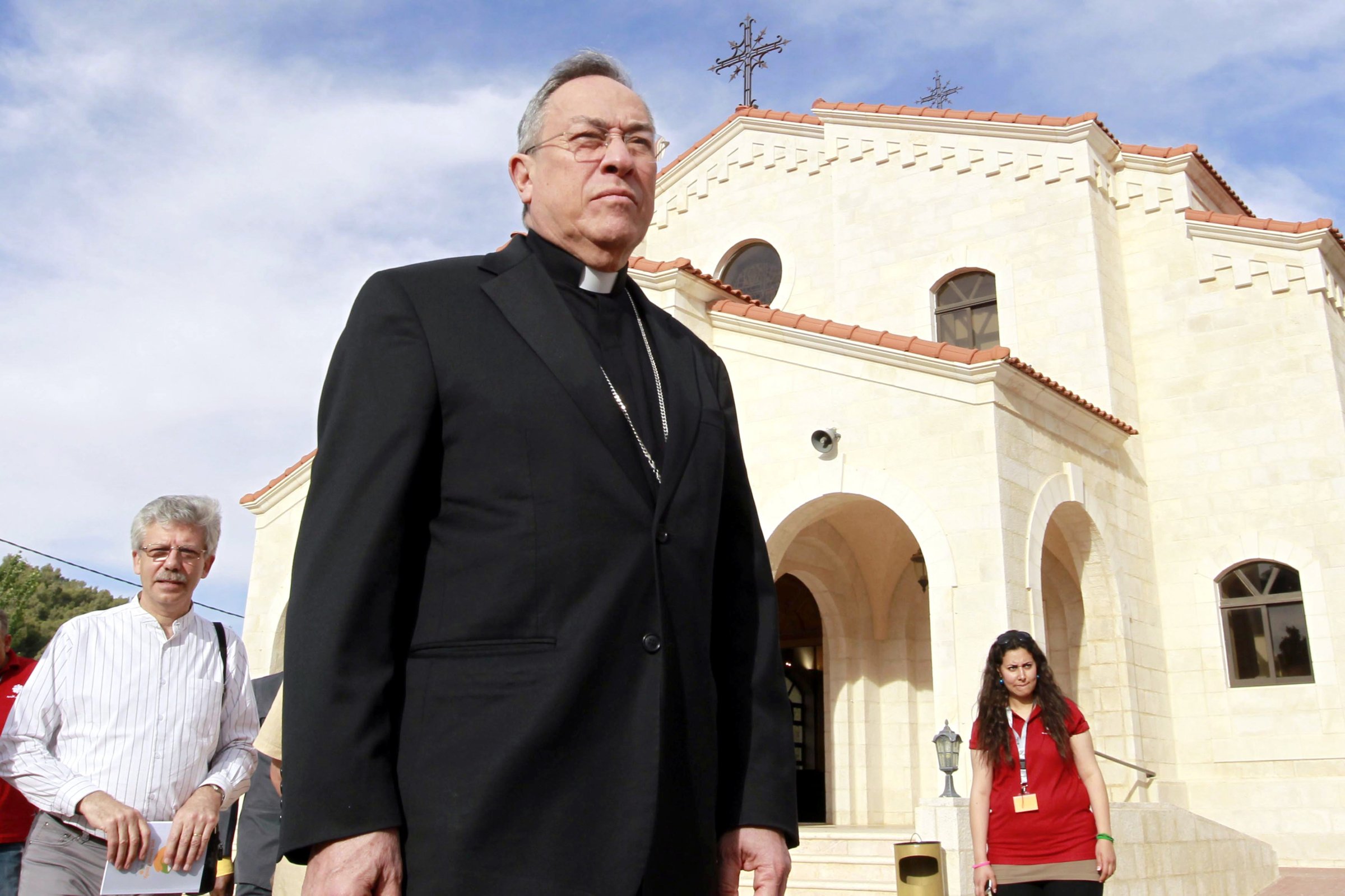
Is Tea Party Catholicism dead as a legitimate political stance within the Catholic Church? That’s what Pope Francis’s close Honduran cardinal-advisor Oscar Rodriguez Maradiaga is arguing.
During his keynote address at a June 3rd forum hosted by The Catholic University of America’s Institute for Policy Research & Catholic Studies, Rodriguez—defending Pope Francis’s economic teachings—derided the current economic system for being built on what he called the “new idol of libertarianism.” “The libertarianism de-regulation of the markets and financial market is much to the disadvantage of the poor,” he said. “This economy kills.”
Rodriguez’s blunt assessment of today’s economic system was echoed by American Bishop Blase Cupich of Spokane, Washington. Speaking directly to “Catholics and believers in our country who are challenged by the pope’s words about income distribution, protection of worker’s rights, and the role of governments in regulating the economy both nationally and internationally,” Cupich reminded them that Francis’s teaching was not his alone, but was “tethered to a rich tradition.” In particular, Cupich referenced Benedict XVI’s 2009 groundbreaking social justice encyclical Caritas in Veritate.
Rodriguez and Cupich’s words are especially provocative within the United States, where the marriage between economic libertarianism and religious values have been hotly debated in recent times. Just last year, the Acton Institute’s Samuel Gregg published Tea Party Catholic: The Catholic Case for Limited Government, a Free Economy, and Human Flourishing. Drawing heavily on the writings of the only Catholic signer of the Declaration of Independence, Charles Carroll, the controversial book argued that the faith’s social tradition has a deep respect for libertarian governing values. It was roundly rejected by Catholic progressives in the United States, most notably the National Catholic Reporter’s Michael Sean Winters.
At time goes on, it’s becoming increasingly clear that Francis and the Church have little patience with libertarian economic thought. This will clearly pose a problem to lawmakers in Washington.
Catholic politician Paul Ryan first comes to mind. The Wisconsin Congressman had at one time been an ardent follower of Ayn Rand, the stalwart Libertarian author and activist. Ryan claimed to disavow her in 2012 because her philosophy was rooted in atheism. That didn’t seem to affect his politics though.
For four consecutive years the chairman of the House Budget Committee has proposed budgets that have been criticized by the United States Conference of Catholic Bishops as morally deficient. Ryan’s budget cuts crucial programs that serve the poorest and most marginalized people in our nation, while providing unnecessary tax breaks for the wealthiest of Americans.
Paul Ryan pushed back in April 2012, arguing in a speech at Georgetown University that his budget and governing philosophy was rooted in Catholic teaching. Ryan came under criticism from a large number of Catholic academics for misrepresenting Catholic teaching in explaining his budgetary policies. The criticism peaked that summer, when Catholic women religious from across the nation under the leadership of Sister Simone Campbell toured the country to protest the Ryan budget. Since the “Nuns on the Bus” tour in 2012 and the election of Pope Francis in 2013, Ryan has increasingly struggled to argue that his budget is acceptable under Catholic social teaching.
Now is a great opportunity for the potential 2016 presidential candidate to pivot. In an essay last December, BuzzFeed’s McKay Robbins argued that Paul Ryan experienced a political conversion after the election of Pope Francis. The first half of 2014 suggests that such claims are either exaggerated or premature.
Fortunately it isn’t too late for the 44-year-old lawmaker to change course. But there is only one tenable way forward. It’s time for Paul Ryan to follow the Catholic Church and reject the carnival dance of the Tea Party. When the mask falls and the truth appears, we will see that this is a movement that twists reality and hurts the poor and suffering.
Let’s hope the words of Pope Francis will ring in his ears: “I would like to make an appeal to those in possession of greater resources, to public authorities and to all people of good will who are working for social justice: never tire of working for a more just world, marked by greater solidarity.”
Christopher Hale is a senior fellow at Catholics in Alliance for the Common Good. He helped lead national Catholic outreach for President Obama’s re-election campaign. You can follow him on Twitter @chrisjollyhale.
More Must-Reads from TIME
- Donald Trump Is TIME's 2024 Person of the Year
- Why We Chose Trump as Person of the Year
- Is Intermittent Fasting Good or Bad for You?
- The 100 Must-Read Books of 2024
- The 20 Best Christmas TV Episodes
- Column: If Optimism Feels Ridiculous Now, Try Hope
- The Future of Climate Action Is Trade Policy
- Merle Bombardieri Is Helping People Make the Baby Decision
Contact us at letters@time.com